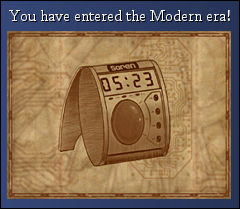
George Orwell, 1939
Premise
Reaction What the narrator contends, and what no one else seems to realize, is that another cataclysm is on the way — certainly no later than 1941, and probably sooner. Yes, everyone knows there'll probably be another war; the skies are full of bombers on practice runs, and schools have regular air raid drills. But apart from the narrator, no one seems to grasp that very soon, when people talk about "before the war" they'll mean now, not 1914; when people talk about the "modern world" they'll mean after the war to come, not now. The book is basically an argument by analogy. We spend a hundred pages learning about the narrator's life as a boy in the town of Lower Binfield. He's the son of the proprietor of a horse-feed shop. Nothing really changes from generation to generation: the town is dominated by a church with a big cemetery out front, and the gravestones bear the same names as the kids he goes to school with. For a while it looks as though he'll spend his entire life in this town, working at the grocery store — but then comes the war, the officer's commission on the west coast, the insurance job, the wife and two kids. When he finally goes back twenty years later, the town is unrecognizable, transformed by corporate gentrification and swallowed by city sprawl. The argument: look around you and start getting nostalgic now, because all this is going away too. Dread of WWII was a minor theme in Keep the Aspidistra Flying, but even there I was struck by it; here it's what the whole book is about, so I found it all the more uncanny. I've plowed through many many stories about World War III. I'm very familiar with the darkly wistful tone that the world we've come to know is about to vanish. But those stories, at least in their time frames, were all wrong. Orwell was right. And as such this book is a reminder that when people predict that there's a new world coming, it's not always crazy talk. All that said, I don't actually recommend it — it's kind of a slog. I especially don't recommend that you get the Harcourt edition; the book is 278 pages long, and the back of the Harcourt edition gives away the plot up to the last big twist on page 262. Jerks!
Return to the Calendar page! |

